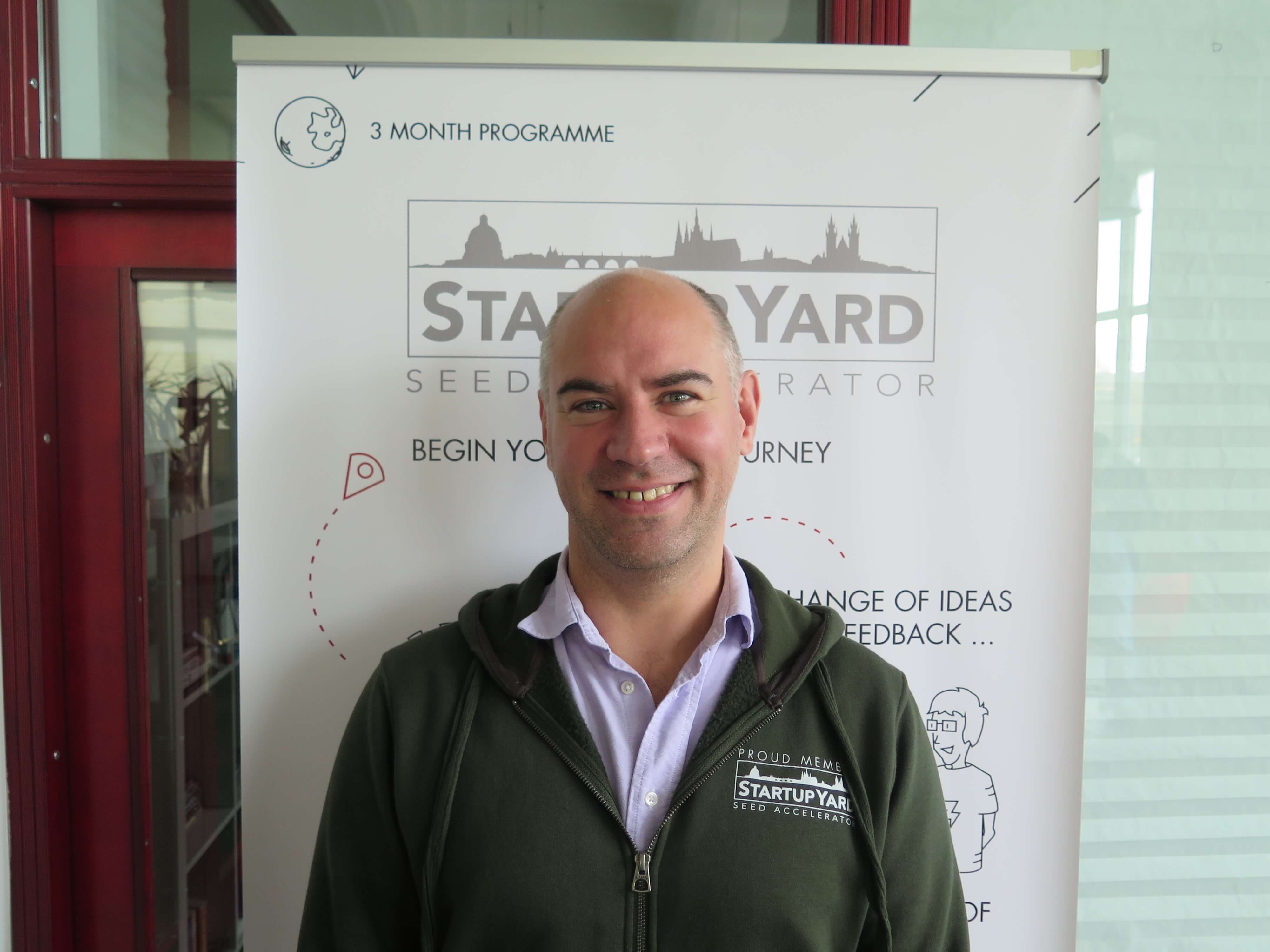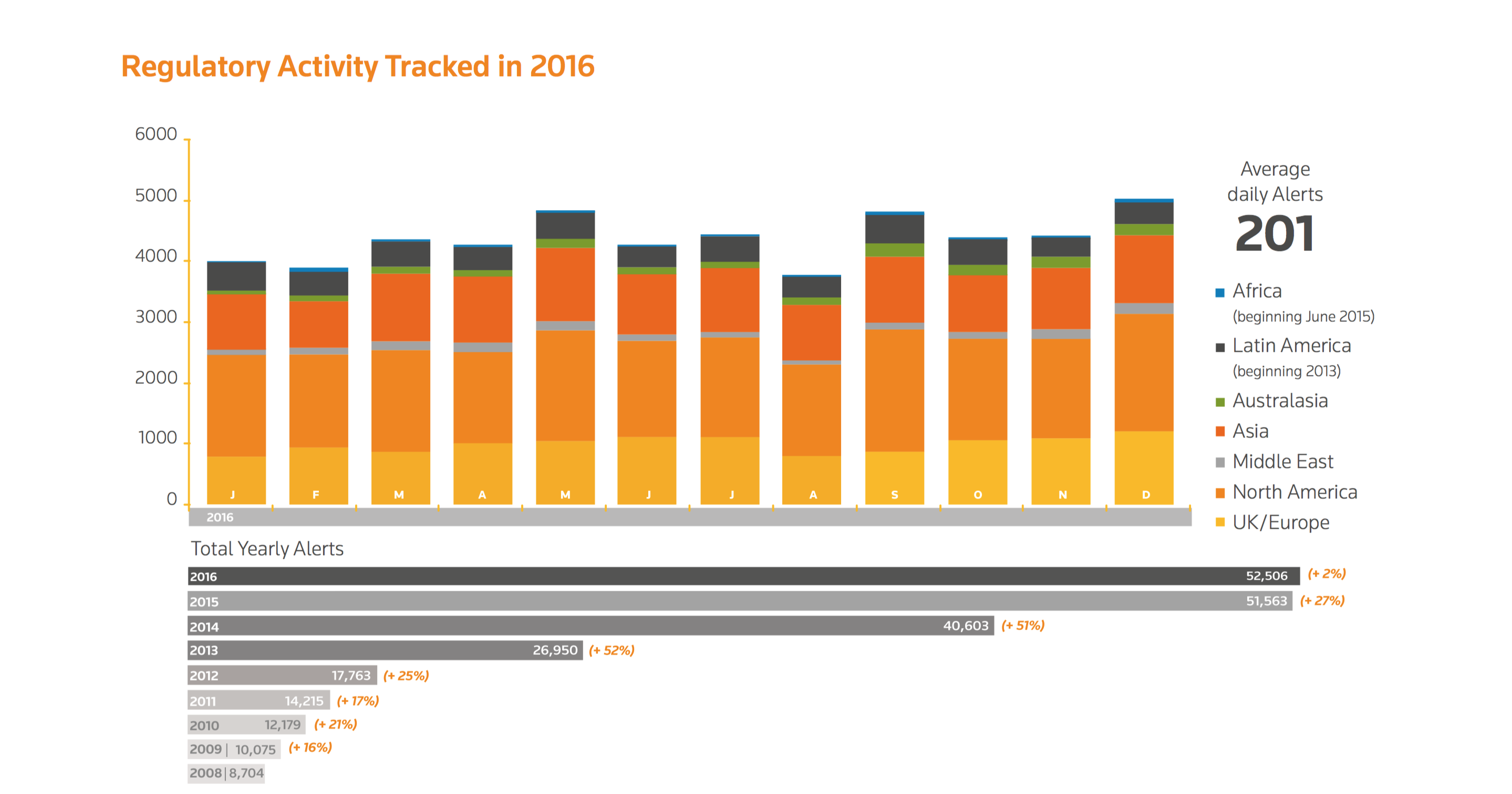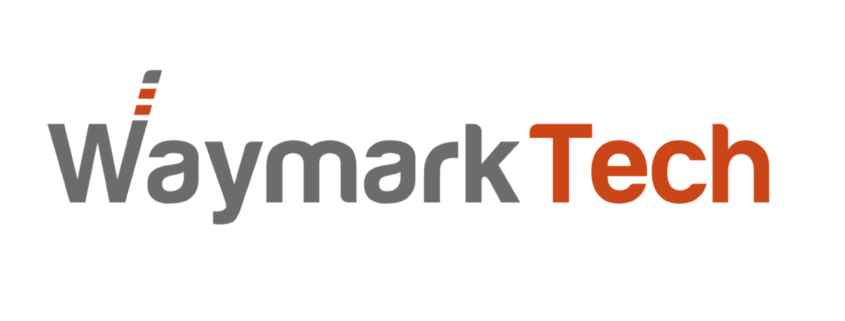Introducing WayMark: AI for Regulatory Compliance
Waymark Tech is the second company of the StartupYard Batch 8 group to hail from sunny England. Mark Holmes, CEO and Founder of Waymark, left the world of financial services to found his first company at 38, with a unique set of life experiences from the City of London.
Holmes founded Waymark in response to a problem only AI can address: the modern world of regulations in a global economy. It’s an AI layer that sits between a company and millions of regulatory documents, directives, and alerts, and helps compliance officers and others to parse the laws and regulations that matter to them, when it matters to them most.
This not only helps companies to avoid costly mistakes, but levels the playing field, so that companies big and small can compete in a marketplace that is frequently unbalanced in favor of one or the other. Mark sees it as his mission to make regulation accessible and useful, rather than allowing it to become an enormous drag upon innovation, and the technological and business advances that can make people’s lives all over the world easier. I sat down with Mark to talk about his vision of an AI that dreams in regulations.
Mark will pitch Waymark tech along with all 7 of the StartupYard Batch 8 Startups at our DemoDay: November 22nd, in Prague. Care to join us?
Hi Mark, how did you get into RegTech (Regulation Technology) to begin with? Tell us how you decided to found a startup to attack that problem.
Often when we think about regulation, especially RegTech, it’s in the realm of Financial Services. That’s where I started.
My father worked in the City of London as Head of Investments for a large commercial property firm, and I spent most of my career there as well. I worked with Morgan Stanley in the equity derivatives department, then Nomura, Deutsche Bank, and HSBC.
I grew up around that culture, which I think has been really valuable to me in my career, and also in what I’m doing now, which is a lot about solving the day-to-day frustrations of people just like I used to be, or my father was.
Over time, I was pulled into focusing on financial technologies, and selling products for big banks and asset managers. During my time at a technology vendor, a lot of my clients were treating me as a pro bono consultant – trying to find out information on regulations and how other clients were approaching them.
As I looked deeper, I realised they were all dealing with regulations manually and knowledge sharing was an informal process. I felt there was a way technology could help with this. I also began to see that it could be applied to other industries as well.

For your customers, what are the pain points that Waymark solves? Why can’t those be solved using existing approaches?
Ever increasing regulations and more complexity is proving just too much for the Industry to handle. The current approach is to throw bodies at the problem, but this is costly and just not scaleable – especially as the businesses grow their product lines and expand into new territories, which brings about more regulatory pressure.
You have a few forces acting at once to create this pressure. The benefits of scale due to mobile technology and e-commerce, as well as the easy transfer of knowledge around the world, means that companies more and more see themselves as global entities. They can execute strategies across many regions like never before.
The goal of a big corporation is to spread the best practices and products to all its markets, to maximize its value. These markets can look similar from the perspective of the product team, or the marketing team, but they are sometimes alien planets in terms of legal issues and regulatory oversight.
As globalization has gone on, regulation has not really slowed down. The complexity of regulations act as a bottleneck for big companies to execute their strategies globally. It’s like having one product idea, and then having to independently develop it in every market you serve. That’s a ton of work, and it can make sharing innovation globally not worth the effort and time.
Can you give us an idea of what that bottleneck looks like?
Ok, let’s say you’re a vineyard in Napa, California, and you have a wine that just knocks people’s socks off. Wine dealers from Europe are constantly buying small batches, and you want to go directly to the European market yourself.
You’re making money, you know wine. But hang on. You have a laundry list of obstacles to overcome. There are 28 countries in the EU, and all of them have a page just like this one on the website of the U.S. Alcohol and Tobacco Trade and Tax Bureau.
What do you have to do to export to any one of those countries? You have to meet a unique set of requirements: Labeling requirements, winemaking standards, import procedures, local licensing, taxes and tariffs, identity and business documents, recycling standards, marketing regulations and limitations, contracts with distributors according to local law… and on and on.
That is of course ignoring the fact that many nations protect their own industries by making competition harder for foreign companies.
Why can’t get you get a nice wine from a small vineyard in Napa? That’s why. Not because you wouldn’t pay for it, but because it’s just too much work.
In the end, that is a shame for consumers and businesses both. We do not have access to all the innovations and products we can, not for a sound business reason, but because the regulatory landscape is too complicated.
Why are regulations becoming more complex, instead of streamlined along with the global economy?
An important question. The truth is that this is as much about politics as about protecting people from harm. Regulations are absolutely necessary to ensure that profit motives are not in total control of what corporations do.
Plus, regulation is increasingly local, while corporations are increasingly global. It used to be that broad regulation covered many smaller companies. Now a single large company must be compliant with a patchwork of regulations across many territories.
Regulations are easy to write, but their effects are hard to predict, so we move in a bit of a cycle. We have a bunch of regulations and directives, and slowly businesses find ways to get around them and innovate faster, and that leads to problems. Then a new set of directives come in and local regulators have to “right the ship.” The corporations then have to scramble to get into compliance again and clean up the mess.
Since the financial crisis in 2008 for example, there has been an increase of 492% in the number of regulations published in Europe and the US. They are wide ranging and touch every aspect of a business. They require a sea change in technology used, in processes and in policies. In the UK, the introduction of the Senior Managers regime means that managers now have to be fully accountable for what goes on – so liability has shifted to personnel rather than the company.
That is why I founded Waymark. It’s an AI layer that lives within a company’s existing information system, and augments it by connecting the company’s activities to relevant regulations. Moreover, it continually monitors the legal landscape, updating compliance officers continuously on new developments.

Thomson Reuters [graphic], tracked 201 new regulatory alerts a day in their report on the Cost of Compliance 2017. Companies need that data to be put into actionable format, and addressed directly to the people who it will effect immediately.
What does that look like? Well in financial services alone, there will likely be 200 million pages of regulations globally by 2020, according to Regtech Rising. That volume will be just unmanageable for big institutions and corporations. They will have to have an active AI layer between them and the mass of regulations to keep up.
What does it look like if a company doesn’t use this kind of RegTech in the future?
Story time: some people might remember in the late 90s, that NASA sent a spacecraft to Mars called the Mars Climate Orbiter. What is memorable about that project is that it failed, when the craft crashed during orbital insertion.
What was the glitch? Well, NASA had a contract with Lockheed to provide some of the ground equipment used in the mission. One of those pieces of equipment was using software programmed in non-SI units (pounds and feet), instead of SI (Metric) units.
The agreement between NASA and Lockheed was solid, but it was not properly implemented across the whole operation at Lockheed. The key people just didn’t ever get on the same page. That’s a straightforward example of how a big enterprise can get killed by a small mistake, that Waymark could solve.
In this case, an AI that checks the software against the requirements, to make sure it follows the agreement, would have caught the error easily. Regulations are many times more complex than that, so it becomes nearly impossible to be compliant, and still deliver products to the market and not get sued.
Some would say it’s now impossible altogether. For every dollar a bank invests in compliance, currently, they pay three dollars in fines. That’s how bad it can be. We pay the cost as consumers, one way or the other, with higher prices or with non-compliant products.
Let’s talk about the role of startups in fintech and other industries: how are these new companies using the regulatory environment to their advantage? What can big firms do about it?
Technology-driven nonbank companies, aka “Fintechs” work in a regulatory void – they are not subject to the same regulatory pressures as the traditional big bank incumbents.
This is changing with regulators working out best approaches to regulate FinTech without stifling the innovation. Big firms can turn this challenge into an opportunity by collaborating with, rather than competing against these FinTech firms. Same goes for other industries, such as professional services. The core skill is not in technology, so by partnering with a tech firm, both sides can benefit and ultimately the client is the winner.
With Waymark, for example, a big firm can eliminate a significant part of the process of integrating a new service into their offering to clients. Waymark is an AI layer that lives on your existing software, so if you are suddenly doing something that is forbidden by regulations, you’ll know right away.
Think of GDPR, the new European Data Privacy framework. On day one, it’s likely that a huge number of big companies will not be compliant. How can they move forward with new products if they’re spending all their time catching up with the old ones?
We don’t want that day to be the end of innovation in Europe, so these companies need to adopt new standards, but also new approaches to compliance. They need to get ahead of changes to compete.
You noted that increasing regulatory complexity is going to make product release cycles slower for big firms. Why is that? How will you fix it?
As firms expand their product scope and geographical reach, so they will have to be aware of the regulations in many regions imposed on new products. This increases complexity within an organisation and so will slow release cycles down.
It is one thing to create a global supply chain for, say, a new version of the iPhone. But it is something else again to have a unique manufacturing and supply process for every single market you’re serving.
That’s a big reason why industries push for alignment of regulations, and also seek to make products that meet regulatory requirements everywhere at the same time.
But that is just another layer of complexity, because it means when you’re designing the product, you have to design it with dozens of different regulatory systems in mind. That is not easy.
What Waymark allows these companies and the regulatory consultants working with them to do, is get product-specific feedback across many different legal systems at once, so they can build something that is broadly compliant with their target markets from the beginning.
If you want to make one particular component using a particular substance, you’ll be able to see, from the drawing board stage, the regulatory problems that decision can cause you. You can address that problem from day one, instead of having to deal with regulators at the last minute, long after any changes can be made.
What kinds of customers is Waymark looking for today? Who is the ideal early-stage partner?
We are looking for Professional Service firms such as management consultants or law firms. People who appreciate how much promise there is in AI for regulatory compliance, and are already experiencing serious pain in keeping up with regulations.
An ideal early stage partner is one who has clients in highly regulated industries and is looking for a way to provide a real value added service to their client base.
In the medium to long term, what industries or customer set do you want to target, and why?
We are focussed on Financial Services, Life Sciences and Energy. The way our platform is designed, however allows us to move into other industry verticals swiftly and so would like to partner with someone in FMCG or Telecoms as well.
Soon, I expect that this kind of technology is going to be necessary across essentially all industries and large enterprises of any kind. Once the early-adopting companies show others how much faster and more efficient they can be thanks to AI for regulation, others will have no choice but to implement their own solutions.
Where do you see regulations in 5-10 years, when AI will possibly have a huge day-to-day influence on company decisions?
Interesting question. AI itself will be regulated and I think we will never be at a point where a company’s decisions are solely made by AI. It will be important to be able to show how a decision was made rather than just a black box.
I think in practical terms, regulations will be machine readable and directly plugged into activities – i.e would work on a real time basis, moving in line with business activities. That would mean, for example, that a factory that is making products would be directly connected with regulators, meaning that changes can be made very quickly when they are needed.
You could imagine a country’s whole supply chain being able to react to air conditions or power demands instantly, and regulators being able to tweak regulations on a constant basis to make them work better.
Back to the present, how has your experience been at StartupYard? What drove you to choose Prague as a second home for the company?
It has been very worthwhile moving to Prague for 3 months. The connections, the clarification and validation of ideas has been invaluable. We are now a proper company and not just a couple of people with a platform. We decided we needed a presence on the Continent due to Brexit driving companies in this direction, and Prague is a good base to give access to CEE.
We would be remiss here if we didn’t talk about Brexit. What will Waymark’s role be in helping UK and EU companies deal with the chaos that Brexit is likely to bring large companies on both sides of the channel?
The chaos and uncertainty around what regulations apply and those that no longer apply will be a big part of the problem. Also the possibility of regulatory arbitrage – i.e. if moving from UK, which regulatory regime would be better to move to for your business, will be a big opportunity.
Waymark will be able to help people play out these what-if scenarios to optimise their business. So in effect -not that I’m happy about it- Brexit is just one more argument in favor of using Waymark for regulatory compliance.
The current system, built on individuals accumulating knowledge by picking through documents for years, is very vulnerable to big changes. If tomorrow Brexit happens, then all that systemic knowledge is in doubt, and very hard to replace.
What kinds of customers or partners do you want to get in touch with you today? How can they reach you?
We are primarily looking to partner with Professional Service firms but also SMB’s looking for help with regulations. They can reach us by mail: mark@waymark.tech or via our website: www.waymark.tech
Mark will pitch Waymark tech along with all 7 of the StartupYard Batch 8 Startups at our DemoDay: November 22nd, in Prague. Care to join us?




